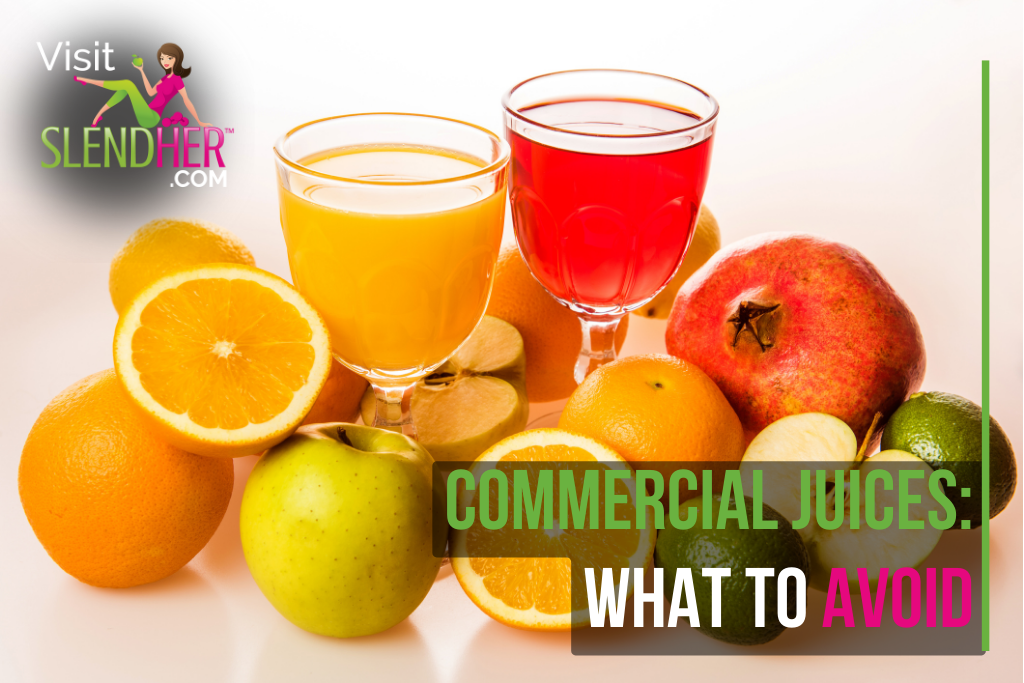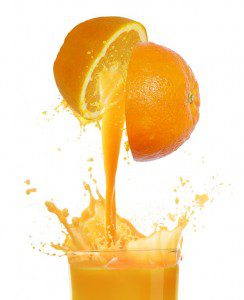
Ah, juice. The liquid form of fruits and veggies, juices are a great way to get nutrients you need if you don’t enjoy the solid versions. They are also widely used for cleansing and maintaining overall health. Unfortunately, there are many commercial juices on the market that contain harmful substances and chemicals, as well as other products such as juice “cocktails” that contain very little juice at all. In terms of commercial juices, do you know which should be avoided like assorted plagues?
 Apple Juice: Great Except For That Whole Arsenic Thing
Apple Juice: Great Except For That Whole Arsenic Thing
Apples are a highly-nutritious fruit, so it follows that downing a glass of its juice is ideal when you don’t have time to eat one. However, high levels of arsenic have been found in many commercial apple juice brands. You’ve heard of arsenic–that powder that used to be a popular method for poisoning people? Yeah, that. In December of 2011 the FDA announced tighter restrictions concerning the amount of arsenic found in apple juice following a Consumer Reports study that indicated high amounts of the poison in grocery store juices. The study also found arsenic present in grocery store grape juice.
Although steps have been taken to lower the amount of arsenic present in commercial apple and grape juices, it’s still probably a good idea to make your own or purchase bottles from local farmers. It’s still unclear how low amounts of arsenic affects children and adults over a long period of time.
Orange Juice: It May or May Not Contain A Fungicide
[adrotate banner=”26″]Most people love orange juice with their breakfast, or enjoy the occasional mimosa or five. Yet a January 2012 news report exposed that low levels of the fungicide carbendazim had been found in orange juice of an unnamed juice company. Carbendazim was used on orange crops in Brazil, which exports juice to the United States, but was not approved for U.S. use. The FDA announced it would make its testing for this fungicide more in-depth, though the U.S. “had not established a maximum residue level for carbendazim in oranges.” The agency found levels up to 35 parts per billion of the fungicide in the juice, and FDA official Nega Beru wrote in a letter to the Juice Products Association that while the agency would test for contamination, they did not believe residue levels were harmful and would not remove juice currently on store shelves. The orange juice revelation came not long after the arsenic-in-apple-juice issue.
If you can’t live without orange juice, it’s probably best to purchase the fruit from a local farmers market and invest in a quality juicer.
Juice Cocktails: Full Of Sugar and Other Nastiness
Unless something reads “100% juice,” refrain from purchasing the liquid. Items with labels such as “juice-flavored beverage,” “juice drink” and “fruit/juice cocktail” are definitely not juice! The main ingredients in such beverages are generally water and sugar, such as high fructose corn syrup. Similar to soft drinks in they are high in calories and sugars, they’re a great way to make you or your child obese.
Recommendations
Among the best juices to consume include cranberry, blueberry, pomegranate, acai, cherry, prune and vegetable juice. All are high in essential nutrients and do other cool stuff like contribute to brain and urinary health, and ease constipation. Again, if you can possibly make your own juice from produce bought at a local market, do so. If not, look for bottled organic juices at independent health stores and produce markets, and don’t forget to read those labels!
[adform]
Sources:
Leave a Reply